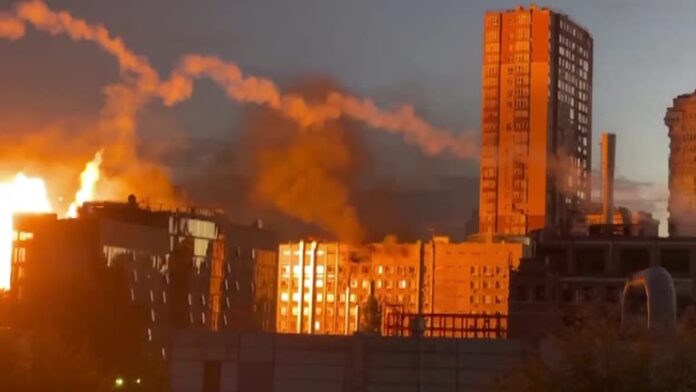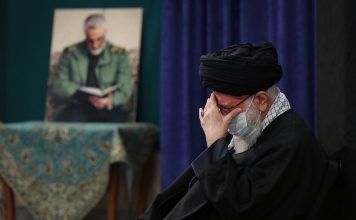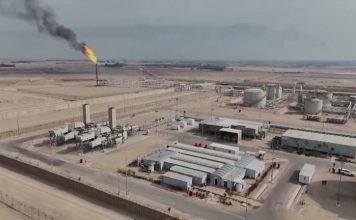KYIV, Oct 18 (Reuters) – Russia launched dozens of “kamikaze” drones on Ukraine on Monday, hitting energy infrastructure and killing five people in the capital of Kyiv. Ukrainians have nicknamed them “mopeds” for the loud whirring noise their engines make as they fly overhead.
Ukraine says they are Iranian-made Shahed-136 attack drones – loitering munitions that cruise towards their target before plummeting at velocity and detonating on impact. Kyiv moved to cut ties with Iran because of their use on Tuesday.
Tehran denies supplying the drones to Moscow and the Kremlin has not commented. Washington says Iran‘s denial is a lie.
Here’s what we know about the devices.
Ukraine’s army on Sept. 13 first said it had destroyed an Iranian drone near Kupiansk, a town recaptured by Kyiv’s troops during a rapid counteroffensive in its northeast last month.
The defence ministry identified the device as an Iranian-made Shahed-136, posting images of what appeared to be parts of a destroyed drone with “Geran-2” written on the side in Russian. The wingtip appeared to match that of a Shahed-136.
[aesop_image img=”https://kayhanlife.com/wp-content/uploads/2019/07/2019-07-17T161950Z_2135815288_RC1F2F356490_RTRMADP_3_MIDEAST-IRAN-DRONES.jpg” panorama=”off” credit=”An Iranian Shahed 171 drone dropping a bomb as part of a military exercise in the Persian Gulf, in Iran, in this undated handout photo. REUTERS./” align=”center” lightbox=”on” captionsrc=”custom” captionposition=”left” revealfx=”off” overlay_revealfx=”off”]
Russia initially used the drones to attack Ukrainian military hardware on the front lines, but in the second half of September it began using them for attacks on infrastructure in Odesa, Mykolaiv and Kharkiv regions, according to army data.
The first massive use of the drones on the Ukrainian capital followed on Oct. 17.
The drones that Kyiv says are the Shahed-136 devices have a wingspan of 2.5 metres and a mass of 200 kg carrying a 40-kg warhead, and fly at a cruise speed of 120 km/h, Ukraine’s air force spokesperson, Yuriy Ihnat, says.
“They can fly in bunches. On the radar, it is one mark, and in that mark there are actually five (drones),” Ihnat said. “Unfortunately, it is not possible to hit 100% (of them) because the target is difficult and small in size.”
He has said the drones claim to have a range of 2,500 km but can actually fly no more than 1,000 km because of fuel limitations and their size.
Ukraine says it needs better air defences to handle the drones including anti-aircraft guns and large-calibre machine gun systems. On Tuesday, it said Kyiv would send an official note to Israel seeking immediate air defence supplies and cooperation in the sector.
Kyiv says the drones are mainly launched from the south, but there have also been cases of launches from Belarus and Russia’s Kursk region. Eight-five percent of the drones are shot down, Ukraine says.
Ukraine shot down 51 Shahed-136 drones on Oct. 17-18, Ihnat said on Tuesday. A day earlier he put the tally of downed drones at 100 since Russia began using them.
Oleh Zhdanov, a Kyiv-based military analyst, said it was not “100% confirmed” that the drones were assembled in Iran.
“It’s one and the same drone, just the assembly could be Syrian or Tajik… we took it completely apart and understand perfectly that it is made up of two parts – parts from China and parts that are produced by Iran itself,” Zhdanov said.
(Reporting by Pavel Polityuk; Writing by Tom Balmforth; Editing by Nick Macfie)










